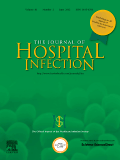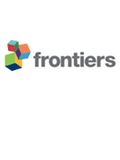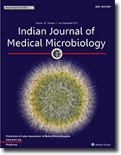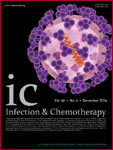
Journal of Hospital Infection
Scope & Guideline
Exploring Innovations in Infectious Diseases and Microbiology
Introduction
Aims and Scopes
- Infection Control and Prevention:
The journal emphasizes research on strategies, guidelines, and interventions aimed at preventing healthcare-associated infections, including studies on hand hygiene, environmental cleaning, and the use of personal protective equipment. - Antimicrobial Resistance:
A significant focus is placed on the epidemiology, mechanisms, and management of antimicrobial resistance, particularly in relation to resistant pathogens prevalent in healthcare environments. - Clinical Outcomes and Surveillance:
Research often involves the analysis of clinical outcomes related to infections, including surgical site infections and bloodstream infections, as well as the effectiveness of surveillance systems in monitoring infection rates. - Innovative Technologies and Methods:
The journal explores new technologies and methodologies for infection detection, disinfection, and contamination control, including studies on ultraviolet light, antimicrobial surfaces, and advanced cleaning techniques. - Public Health and Policy Implications:
The journal addresses the broader public health implications of hospital infections, including the economic impact of HAIs and the importance of policy and guidelines in infection prevention.
Trending and Emerging
- Impact of COVID-19 on Infection Control Practices:
The pandemic has led to a surge in research examining the implications of COVID-19 on infection control measures, including the effectiveness of PPE, hand hygiene compliance, and the management of nosocomial infections. - Advanced Molecular Techniques:
Emerging research utilizing molecular techniques, such as whole-genome sequencing, to investigate outbreaks and track transmission dynamics of resistant organisms is becoming increasingly prominent. - Integration of Technology in Infection Prevention:
There is a growing trend towards studies exploring the use of technology, including electronic monitoring systems for hand hygiene and automated disinfection systems, to enhance infection prevention efforts. - One Health Approach to Infection Control:
Research that integrates human, animal, and environmental health perspectives in understanding and controlling infections is gaining traction, reflecting the interconnected nature of health systems. - Patient Engagement and Education:
Emerging themes focus on the role of patient education and engagement in infection prevention, highlighting strategies to empower patients in their care to reduce the risk of hospital-acquired infections.
Declining or Waning
- Traditional Antibiotic Stewardship:
Although still relevant, the emphasis on conventional antibiotic stewardship strategies has decreased as focus shifts towards novel approaches, including rapid diagnostics and personalized medicine. - Basic Environmental Microbiology:
Research centered solely on basic environmental microbiology without direct implications for infection control practices has seen a reduction, as the journal prioritizes studies with clear clinical applications. - Outdated Infection Control Practices:
Studies that do not incorporate the latest evidence-based practices or technological advancements in infection control are less frequently published, reflecting a move towards more contemporary and applicable research. - Generalized Surveillance Systems:
Research on generic surveillance systems without specific focuses on high-risk areas or pathogens has declined as the journal emphasizes more targeted and actionable surveillance methodologies.
Similar Journals

CLINICAL MICROBIOLOGY AND INFECTION
Leading the Charge Against InfectionsCLINICAL MICROBIOLOGY AND INFECTION is a leading journal published by Elsevier Science Ltd, dedicated to advancing the field of infectious diseases and clinical microbiology. With its ISSN 1198-743X and E-ISSN 1469-0691, this esteemed journal has maintained its influential presence since 1995, showcasing high-impact research that addresses critical issues in the diagnosis, treatment, and prevention of infections. Ranked in the Q1 quartile for Infectious Diseases, Medicine (miscellaneous), and Microbiology (medical) categories, and boasting impressive Scopus rankings of #12 and #7 respectively, it sits at the forefront of scientific inquiry in these disciplines. Although it is not an Open Access journal, it provides comprehensive access options for institutions and individuals, ensuring the dissemination of vital research findings. As the field of clinical microbiology continues to evolve, CLINICAL MICROBIOLOGY AND INFECTION remains an essential resource for researchers, clinicians, and students aiming to stay informed on the latest developments and breakthroughs in understanding infectious diseases.

Revista Espanola de Quimioterapia
Bridging Research and Practice in Medicinal ChemistryThe Revista Espanola de Quimioterapia, published by the SOCIEDAD ESPANOLA QUIMIOTERAPIA, is a pivotal open-access journal that has been advancing the field of clinical microbiology and pharmacology since its inception in 1989. With an E-ISSN of 1988-9518, this journal caters to a diverse audience of researchers, healthcare professionals, and students, providing them with critical insights into the latest developments in medicinal chemistry and therapeutic strategies. Located in Madrid, Spain, the journal reflects the rigorous academic standards of its associated institutions, contributing significantly to the translation of research into clinical practice. Achieving a Q3 ranking in the fields of Medicine, Microbiology, and Pharmacology in 2023 attests to its growing influence and relevance in the scientific community, making it a vital resource for those engaged in the quest for innovative solutions to pressing healthcare challenges. The journal prides itself on its commitment to maintaining an open-access model since 2018, ensuring that vital research is freely accessible to foster greater knowledge sharing and collaboration within the global scientific community.

International Journal of Antimicrobial Agents
Elevating Research in Microbiology and PharmacologyInternational Journal of Antimicrobial Agents, published by Elsevier, stands as a premier platform in the fields of Infectious Diseases, Microbiology, and Medical Pharmacology. With an impressive impact factor and ranked in the Q1 category across multiple medical disciplines in 2023, this journal is recognized for its contribution to advancing knowledge and understanding in the efficacy and safety of antimicrobial treatments. Its comprehensive scope from 1991 to 2024 allows for the publishing of original research, reviews, and commentary on pressing issues related to antimicrobial resistance, treatment strategies, and pharmacological innovations. With a strong emphasis on high-quality research as reflected in its Scopus rankings, the journal is an essential resource for researchers, clinicians, and students dedicated to improving patient outcomes in the face of evolving microbiological challenges. Engage with the latest findings and methodologies through this vital academic resource, available in print and online, from the heart of the Netherlands.

Frontiers in Cellular and Infection Microbiology
Connecting researchers to combat global health challenges.Frontiers in Cellular and Infection Microbiology, published by FRONTIERS MEDIA SA, is a leading Open Access journal that has been at the forefront of microbiological research since 2011. Located in Switzerland, this journal aims to provide a platform for innovative and impactful studies in various domains including immunology, infectious diseases, and medical microbiology. With an impressive range of quartile rankings—Q1 in Infectious Diseases, Microbiology, and Microbiology (medical), and Q2 in Immunology—as of 2023, it positions itself as a highly reputable source in the academic community. Furthermore, its Scopus rankings highlight its significance within the respective fields, with top percentiles in key categories, making it an essential resource for researchers, professionals, and students alike. As an Open Access publication, it ensures that vital findings are accessible to a global audience, fostering collaboration and advancement in science.

Indian Journal of Medical Microbiology
Bridging Science and Clinical Practice in MicrobiologyIndian Journal of Medical Microbiology, published by Elsevier, is a pivotal peer-reviewed journal dedicated to the field of medical microbiology, providing a vital platform for research and scholarship since its inception in 1986. With an Open Access model established in 2001, it ensures the dissemination of scientific knowledge to a global audience, enhancing accessibility for researchers, professionals, and students alike. The journal's scope spans critical areas including immunology, infectious diseases, and microbiology, with an impressive trajectory marked by converged years of publication allowing for a comprehensive exploration of evolving scientific trends. As of 2023, the journal holds a Q3 ranking in Infectious Diseases and Microbiology (medical) and a Q4 ranking in Immunology and Microbiology categories, reflecting its significant yet growing impact in the field. Researchers seeking to contribute to or stay updated on the latest advancements in medical microbiology will find the Indian Journal of Medical Microbiology a valuable resource, as it consistently bridges the gap between emerging science and clinical application.

Journal of Infection and Public Health
Championing Open Access to Groundbreaking Health ResearchJournal of Infection and Public Health is a premier open-access journal published by ELSEVIER SCIENCE LONDON, dedicated to advancing knowledge in the fields of infectious diseases, public health, and environmental health. Since its inception in 2008, this esteemed journal has become a cornerstone of research dissemination, especially after transitioning to an open-access model in 2017, allowing wider accessibility to groundbreaking studies. With an impressive impact factor and ranking in the Q1 category for Infectious Diseases and Public Health as of 2023, the journal stands at the forefront of scientific inquiry, boasting a Scopus rank of #22 out of 665 in Public Health, underscoring its influence and reach in the academic community. Researchers, professionals, and students alike will find the journal's rich repository of peer-reviewed articles invaluable for ongoing education and practice in a rapidly evolving field. For contributing to the global understanding of health dynamics, Journal of Infection and Public Health is a vital resource, inviting scholars to explore, engage, and contribute to the crucial discussions shaping our world.

Infectious Diseases and Clinical Microbiology
Fostering collaboration in the fight against infectious agents.Infectious Diseases and Clinical Microbiology is a pivotal journal dedicated to advancing our understanding of infectious diseases through rigorous scientific research and clinical practices. Published by DOC DESIGN INFORMATICS CO LTD, this journal serves as a vital platform for researchers, healthcare professionals, and students keen on enhancing their knowledge of microbiological sciences and the clinical implications of infectious agents. With an ISSN of 2667-646X, it aims to disseminate significant findings in the field, enriching the scholarly dialogue surrounding infectious diseases. While currently operating under a traditional access model, the journal encourages global collaboration and knowledge sharing, striving to make a meaningful impact in tackling the challenges posed by infectious diseases. Its content aims to bridge the gap between laboratory research and clinical application, making it an essential resource in the contemporary landscape of global health.

Annals of Clinical Microbiology and Antimicrobials
Empowering researchers with open access to groundbreaking studies.Annals of Clinical Microbiology and Antimicrobials, published by BMC, is a leading open-access journal that has been fostering scientific discourse in the fields of microbiology and infectious diseases since its inception in 2002. With an established reputation for excellence, this journal is positioned in the prestigious Q1 category across multiple disciplines, including Infectious Diseases, Medicine (miscellaneous), and Medical Microbiology as of 2023. This journal serves as a vital platform for researchers, healthcare professionals, and students, promoting the latest advancements in clinical microbiology and antimicrobial research. Access to its invaluable content is open to all, reflecting the commitment to disseminate knowledge universally. The Annals of Clinical Microbiology and Antimicrobials is based in the United Kingdom and continues to pave the way for innovation and discussions that shape the future of clinical practices in microbiology.

Infection and Chemotherapy
Leading the Charge in Antimicrobial ResearchInfection and Chemotherapy, an esteemed journal published by the Korean Society of Antimicrobial Therapy, focuses on the dynamic fields of infectious diseases and pharmacology. With an ISSN of 2093-2340 and an E-ISSN of 2092-6448, this peer-reviewed, open-access journal has been providing a crucial platform for research dissemination since 2008. Based in South Korea, it boasts a significant impact in the academic community, as evidenced by its Q2 ranking in both Infectious Diseases and Pharmacology categories for 2023. It holds a Scopus rank of 64 out of 272 in Pharmacology and 98 out of 344 in Infectious Diseases, showcasing its prominence and the quality of research it publishes. With a focus on advancing scientific knowledge, Infection and Chemotherapy is committed to fostering essential dialogues among researchers, clinicians, and students, making it a vital resource for those engaged in the fight against infectious diseases and the development of effective therapeutic protocols.

Infection Prevention in Practice
Transforming public health with innovative infection prevention strategies.Infection Prevention in Practice is a leading academic journal published by ELSEVIER that has established itself as a vital resource in the domains of Infectious Diseases and Public Health. With its Open Access policy implemented since 2019, the journal enhances global accessibility to cutting-edge research and practical insights aiming to reduce the risk of infections in various settings. It proudly holds a Q3 ranking in Infectious Diseases and a Q2 ranking in Public Health, Environmental and Occupational Health as of 2023, showcasing its impact and relevance within the scientific community—particularly with a Scopus rank placing it in the 71st percentile for public health research. Its scope includes the latest advancements, strategies, and practices in infection prevention, making it an indispensable read for researchers, healthcare professionals, and students dedicated to improving health outcomes and combating infectious diseases effectively. The journal operates from its base in the United Kingdom and reaches a global audience, fostering collaboration and innovation in infection control practices.